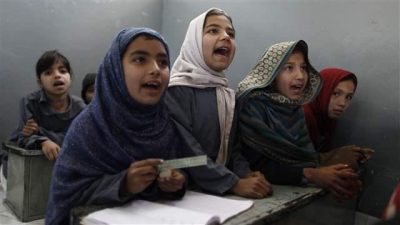By
Anant Mishra
The Millennium Development Goals were designed to tackle the largest problems of the world’s poor. If all the goals are completed as originally envisioned they have the potential to lift 500 million people out of poverty, but progress has been slow. That is not to say that no progress has been made, but it does mean that continued, concerted effort on the part of all nations is required if the goals are to be reached.
In addition to being one of the Millennium Development Goals, education is considered by some to be a fundamental human right – and is listed as such in the Universal Declaration of Human Rights. According to the World Bank, which is responsible for tracking data associated with the progress of the MDGs, the “goal of providing universal primary education has proved surprisingly hard to achieve”. Completion rates measure the proportion of children enrolled in their final year of primary education after adjusting for repetitions. In 2011, 49 countries had achieved, or were on task to achieve, 100 percent primary completion rates, only three more than in 2004. Additionally the number of countries seriously off-track increased, especially in Sub-Saharan Africa. This means that despite international attention, the global community has yet to make significant progress on this issue.
The goal of universal primary education cannot be discussed in isolation of the other MDGs, as they are all tied together. For example, if gender equality is stagnant, then promoting the education of young females will be more difficult. Therefore, the difficult question becomes how to divide and conquer among the goals while maintaining the big picture of their interconnected nature.
History of Topic in the Arab World
Progress on the MDGs in the Arab World has demonstrated the huge achievement gaps between those countries with the resources to fund the development of their peoples, and those countries that do not. According to the Millennium Project, “in many countries the rural/urban education gap is the most important factor explaining education differentials.” As an important regional actor, it could rest with the Arab League to bridge those gaps through League-wide efforts. Worldwide, the most successful efforts have encouraged students to attend school by subsidizing the overall cost of attendance, such as tuition, supplies, etc.
The tendency to separate genders throughout their education has also proven to be a challenge for Arab countries to achieve this goal, as “studies have indicated that the lack of female teachers is one of the factors resulting in low enrolment and retention of girls in schools, particularly in higher grades when parents tend to object to male teachers.”This is a clear demonstration of the importance of looking at the Millennium Development Goals collectively when addressing universal education.
Finding a Solution to the Problem
Solutions will be varied and creative, but a set of ‘best practices’ will enable countries throughout the region to collectively achieve the MDGs. There are several key strategies that have been implemented by those countries faced with more limited resources, including cost reduction, improvement of teachers, mobilization of the private sector, and steps to ensure equality. The Arab League has the capacities to create umbrella programs or initiatives that effectively promote these four general areas, although this list is by no means exhaustive. Quality of programming is far more important that quantity of programming, especially in regards to early childhood education. Inspiring youth to become teachers makes the system more sustainable, essentially allowing teachers to teach their eventual replacements.
Unfortunately, a nation’s ability and willingness to focus on these issues can be dependent on resources and political willpower. The solution, while it will likely require funding, should not be dependent on funding – which is why the four categories listed above are so important.


